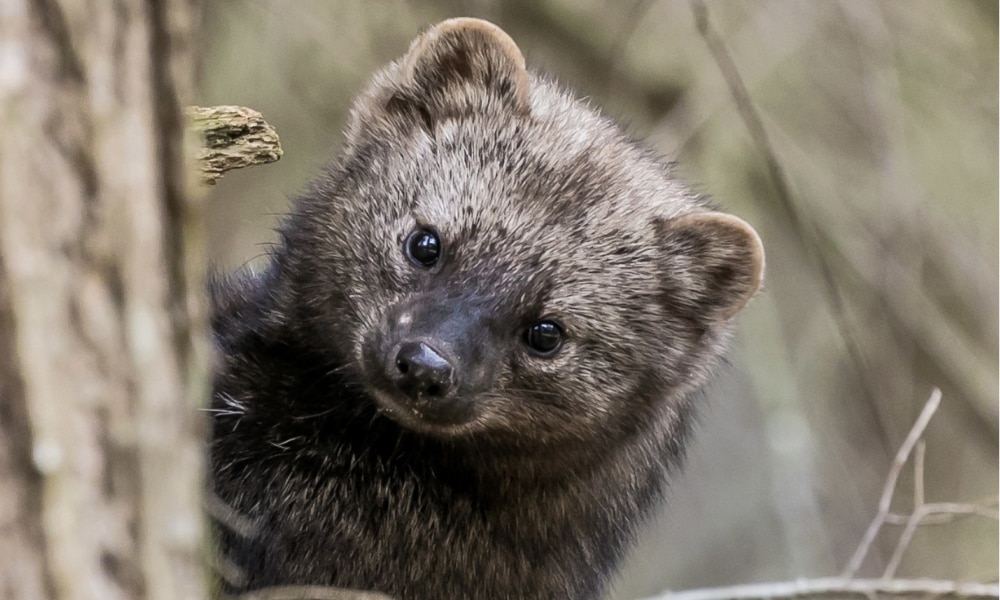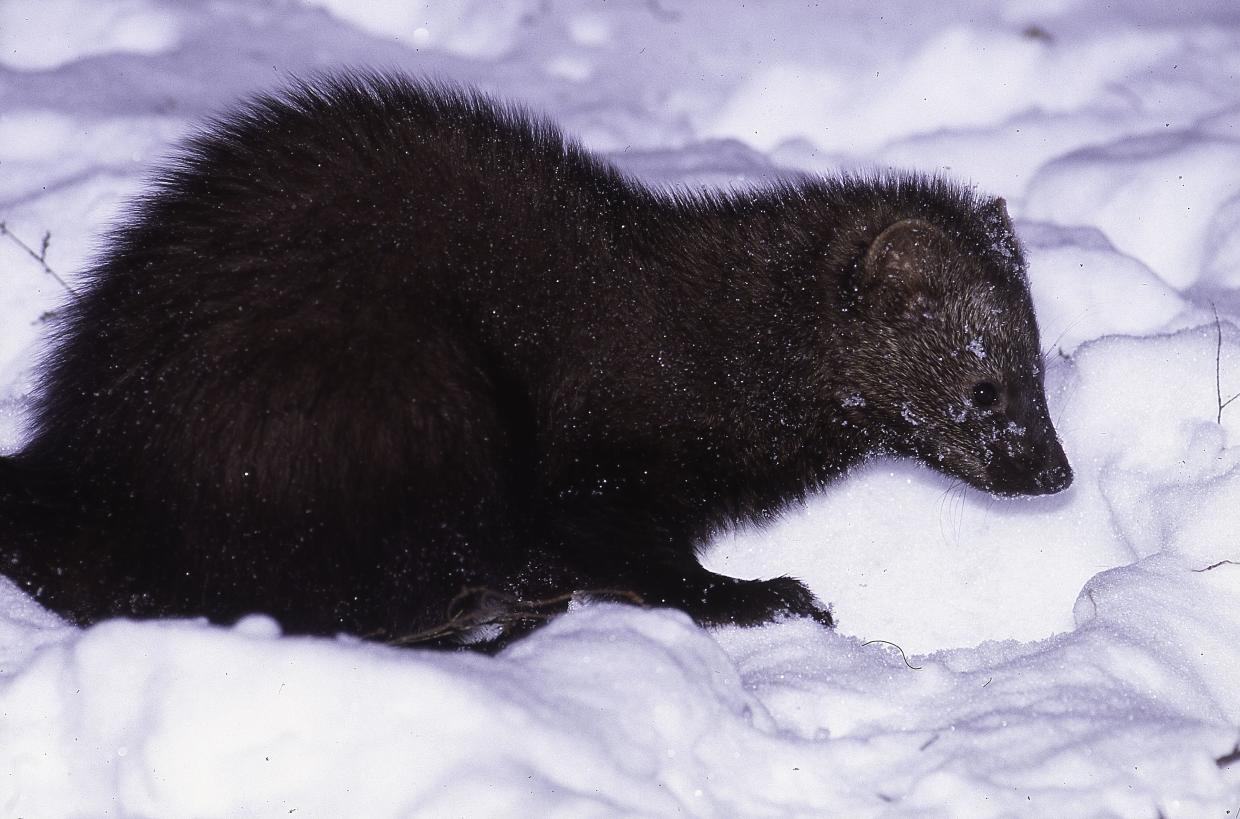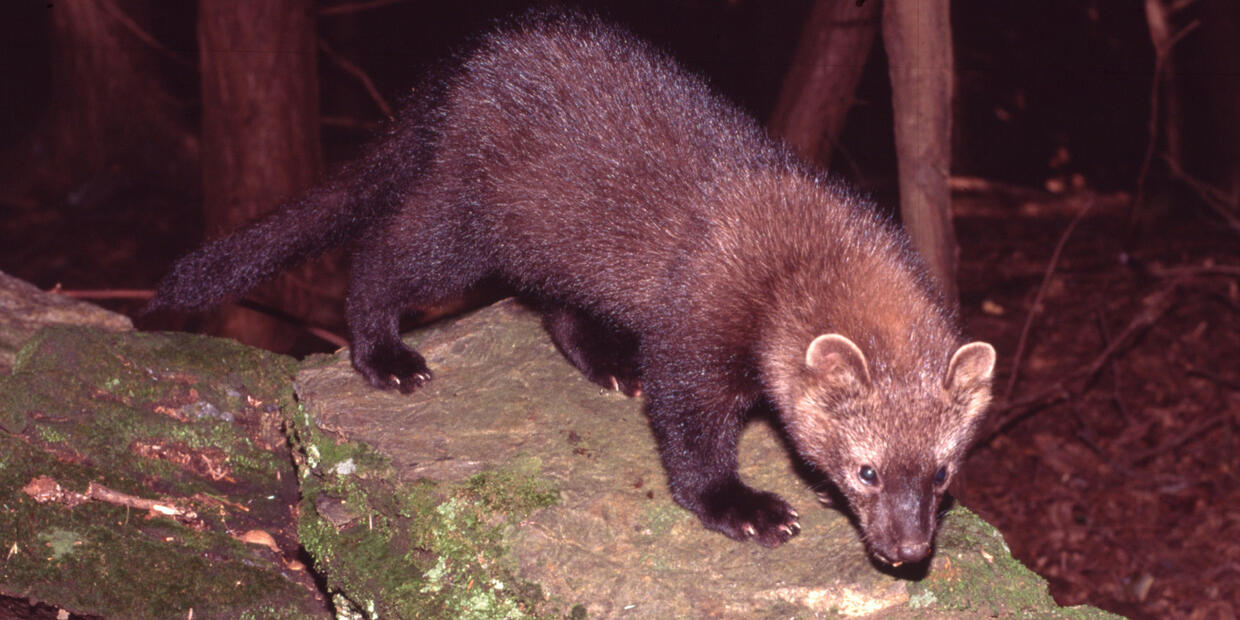- Division of Fisheries and Wildlife
Media Contact
Media Contact, MassWildlife

Image credit: Christina Radcliffe
Fishers, sometimes called “fisher cats,” are elusive and often misunderstood creatures. Though they’ve gained a reputation as vicious predators, fishers are shy and solitary, preferring to avoid humans whenever possible. Because they are rarely seen, many people don’t know much about them. This has led to some common misconceptions about their behavior. Let’s take a closer look at these fascinating predators and separate the facts from fiction.
Why are they called fishers?
The origin of the name “fisher” is mostly unknown, but there are a few possibilities. The most likely explanation is that European settlers saw their resemblance to a related animal, the “fitch” (polecat), which is native to Europe. Over time, “fitch” became “fisher.” Fishers are opportunistic predators, but fish are not a regular part of their diet. Squirrels, birds, fruit, eggs, carrion, and porcupines are more typical sources of food.
Some people mistakenly refer to fishers as “fisher cats.” The fisher’s short muzzle, long whiskers, and retractable claws may seem cat-like, but they are actually members of the weasel family (Mustelidae). They are the second-largest mustelid that can be found in Massachusetts. The largest is the North American river otter.
How big are fishers?
Adult males usually weigh between 8 to 16 pounds, which is around the weight of an average house cat or small dog. Female fishers are smaller than males, weighing only 4 to 6 pounds. The nose-to-tail length of the animal is 2 to 3 feet. Their long, bushy tails make up about a third of that total length.
Many animals appear to look larger in the winter when they grow extra fur to keep them warm. A fisher’s plush winter coat can be 3 inches thick! All that extra fluff, along with their long tail, make fishers appear much larger than they are.
Will fishers attack people or pets?
Despite their fearsome reputation, there are very few instances of fisher attacks on humans. The few attacks that have occurred in Massachusetts were likely the result of a defensive action by a cornered animal.
Fishers are generally more afraid of people than we are of them, but access to human-associated food sources can lead to bold behaviors. Leaving pet food outdoors, garbage uncovered, or bird seed on the ground can attract fishers and other wild animals to homes and neighborhoods. As they continue to seek food provided by humans, they may lose their natural fear of people. Never intentionally feed or approach any wild animal.
While fishers are capable of preying upon cats and small dogs, they usually prefer smaller prey items. A study conducted in New Hampshire between 1979 and 1980 found that fishers are blamed somewhat unfairly for the disappearance of outdoor cats. Out of over 1,000 fisher stomachs examined by researchers, only one contained cat hairs. This evidence suggests that cats are eaten by fishers much less often than previously thought.
It’s still important to take steps to protect cats and other pets from other wild animals, like coyotes. If you keep backyard chickens, you should take action to secure their coops and protect them from predators.
Do fishers scream?
You may have heard the claim that fishers let out a blood-curdling scream before making a kill, but that is not the case. Making too much noise while hunting would alert prey to their presence, decreasing their chances of catching food. It would also let other predators and scavengers know that there is an easy meal to steal nearby.
While fishers do make a number of sounds, they tend to be quiet creatures. Most of their vocalizations are limited to quiet growls and chuckle-like grunts. They are able to make a screaming sound, but this is a very rare occurrence that only happens when the animals are under extreme stress or in unusual circumstances.
There are a few other culprits that may be making strange sounds at night. Check out the audio recordings below to compare!
Why are fishers important?
Over the past two centuries, the fisher population has made a significant comeback in Massachusetts. Unregulated trapping and agricultural land clearing led to their complete eradication by the 19th century. Thanks to habitat conservation and regulated trapping seasons, fishers are an important part of Massachusetts ecosystems once again. Fishers are one of few predators that actively hunt porcupines, so a forest without fishers suffers when porcupine numbers begin to rise. Without fishers to keep the porcupine population in check, porcupines overbrowse tender new growth and chew bark away, which harms the trees and can lead to a decline in forest health over time.
In addition to their ecological value, fishers are an important natural resource. Indigenous people have trapped fishers for centuries, making warm clothing out of their fur. When European colonists arrived in America, they also saw the value of fisher pelts and traded them extensively. Fishers remain a valuable furbearer species to native peoples and licensed trappers today.
Fishers are a rare treat to observe in nature. Their shy demeanor may add to the mystery surrounding these animals, but it also makes them especially exciting to see. As one of our many wild neighbors, it is important to learn more about these misunderstood creatures and ensure their longevity as a part of the landscape.


